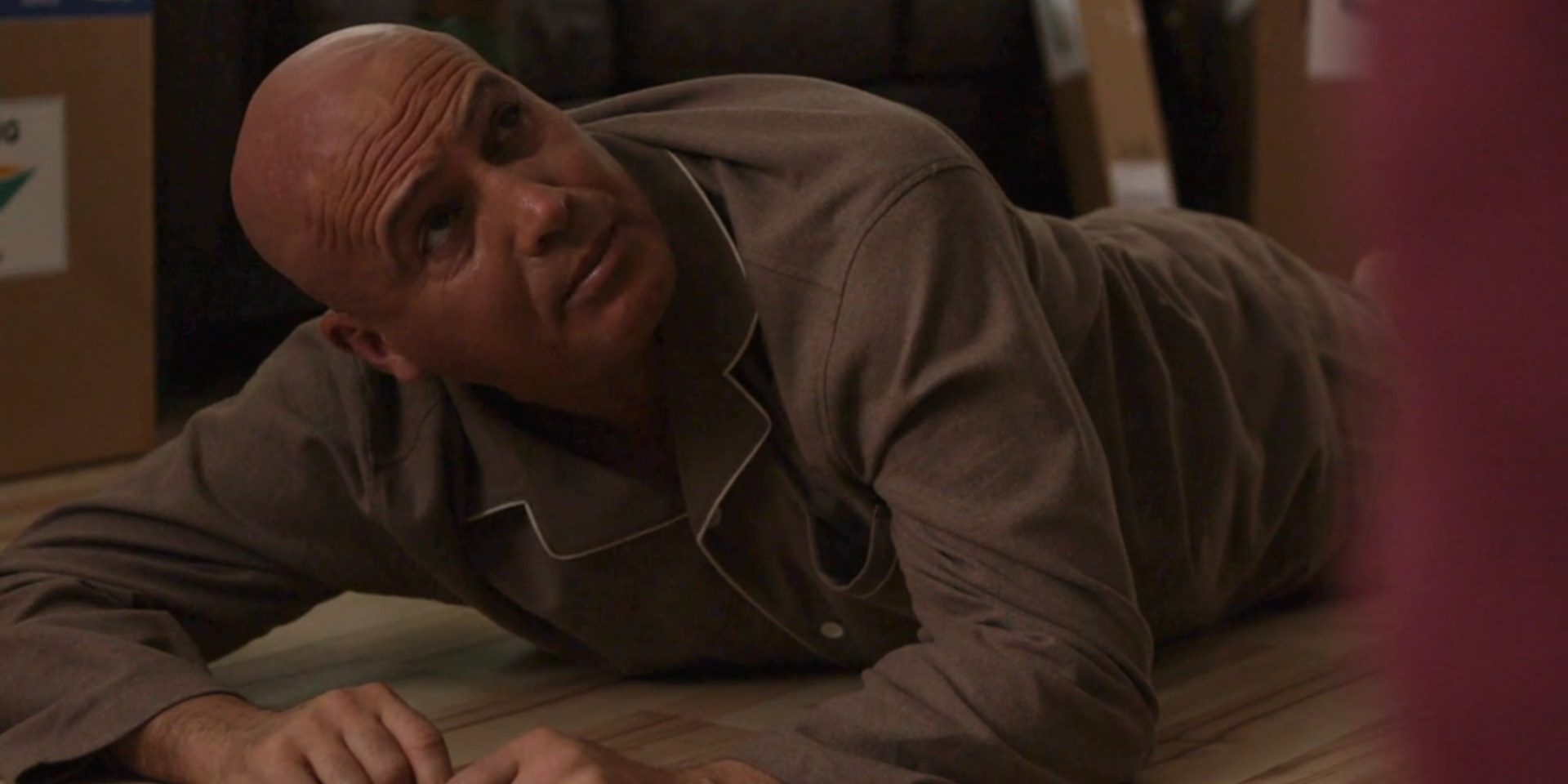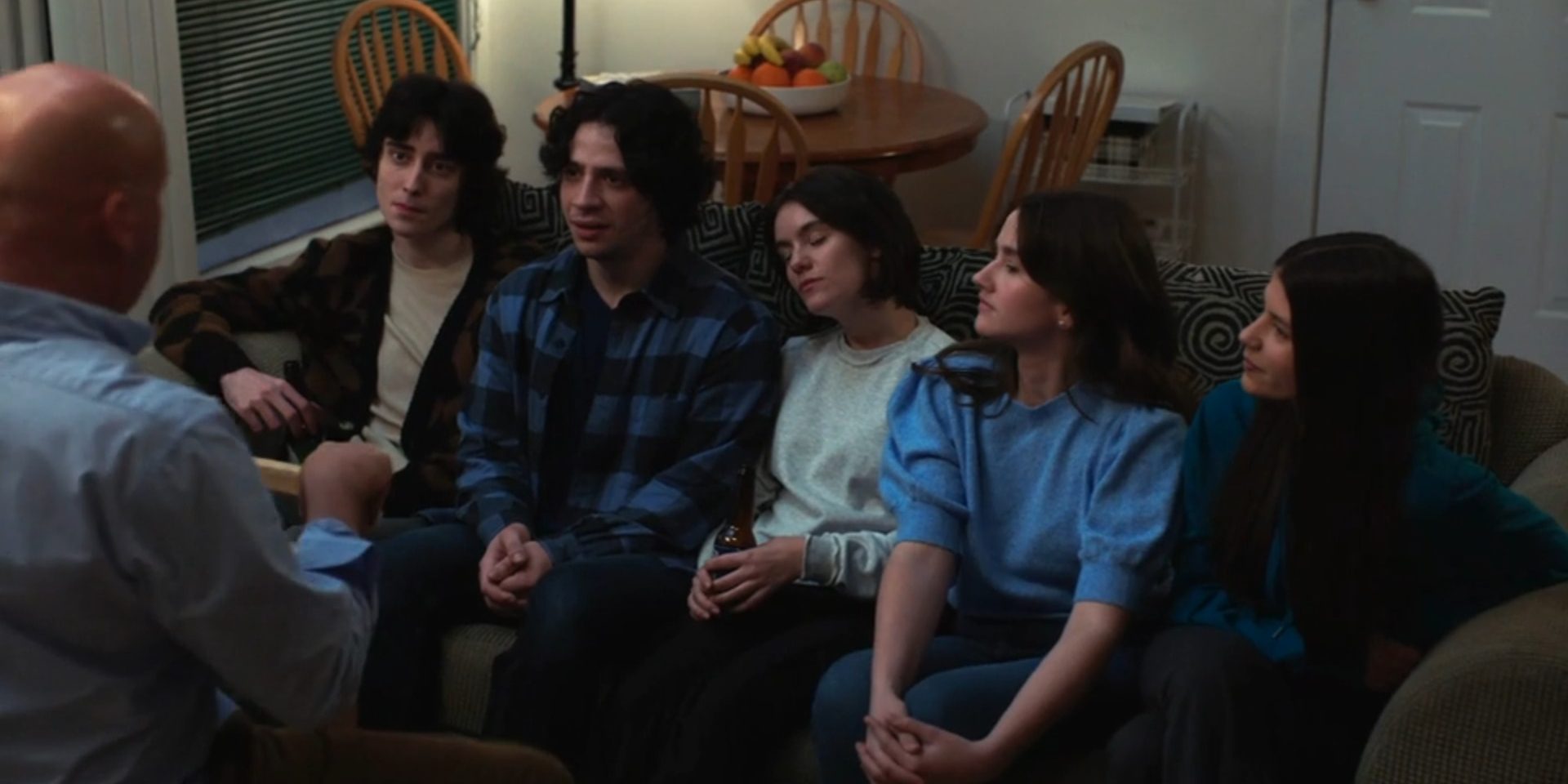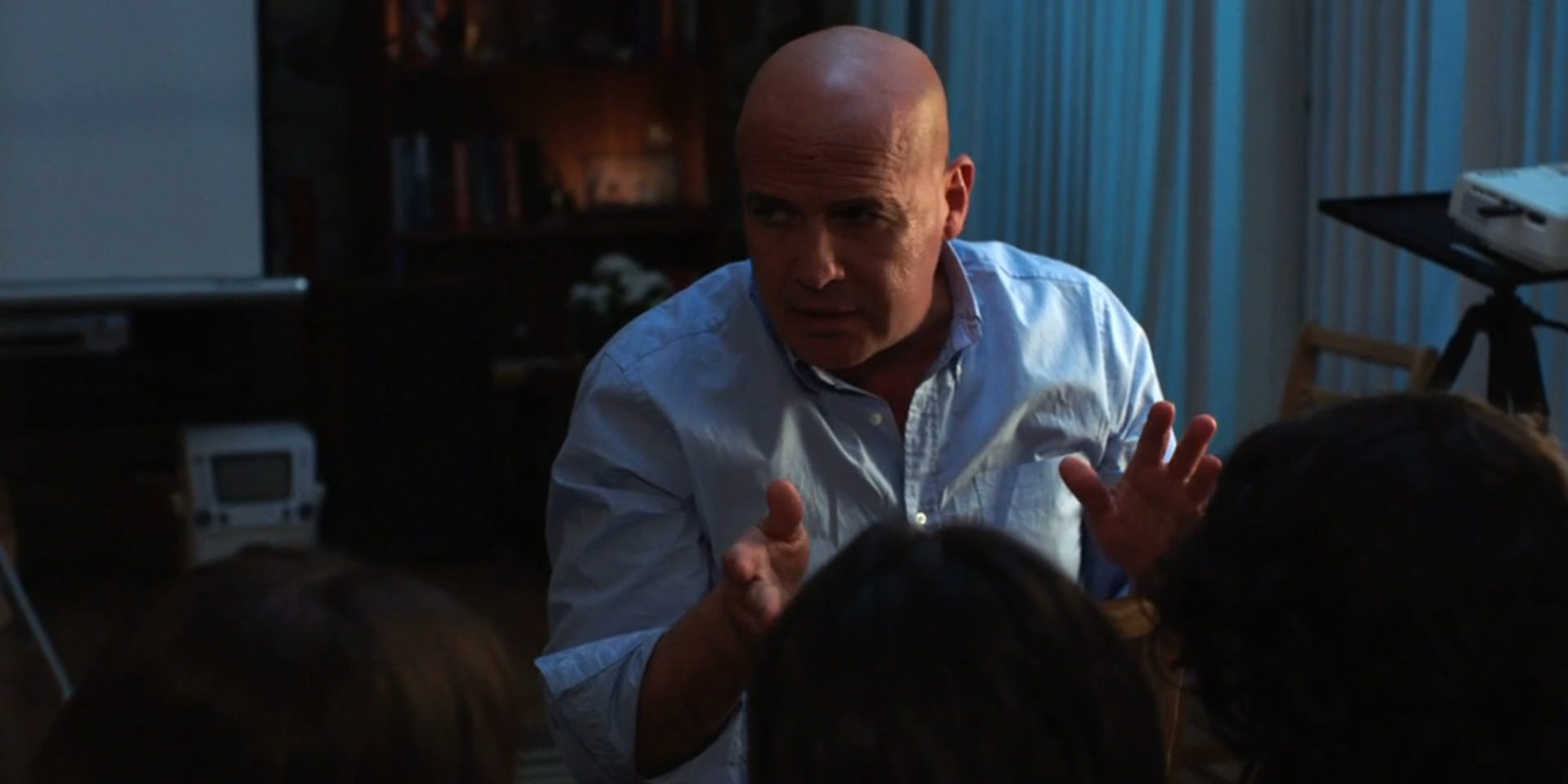Lifetime’s ‘Devil on Campus: The Larry Ray Story’ revolves around a recently released ex-convict named Larry Ray, who visits his daughter’s dorm and ends up staying there with her and her friends. Exhibiting a welcoming and friendly nature from the get-go, he works on earning the trust of everyone in the dorm. Once he gains the students’ blind faith, he slowly creeps into their psyche and takes advantage of their darkest fears and insecurities. Soon, he not only alienates the students from their families but also manipulates them financially and sexually.
As he holds power and control over his daughter’s friends, he makes them do questionable things, including work in the escort business. Led by Billy Zane’s stellar performance, the Elisabeth Röhm directorial also features other young talented actors, such as Tedra Rogers, Frankie Warren, Alexis Sides, Erin Walsh, and Elizabeth Röhm, who bring the intriguing tale to life. Portraying the vulnerability of students and the susceptibility of humans to fall into the disturbing psychological tactics of a master manipulator, the movie explores several realistic themes and elements.
Devil on Campus is Based on an Actual Cult Formed by Larry Ray
The real-life case of the Sarah Lawrence College cult led by Larry Ray is what inspired the director to turn it into a Lifetime production. In 2010, Lawrence “Larry” Ray made his way into his daughter’s dorm at Sarah Lawrence College in Bronxville, New York. Overstaying his welcome, he started a cult called “The Ray Family,” which consisted of many of his daughter’s friends. Through his power of manipulation, Larry coerced the members of the “family” into doing immoral and criminal things for him for nearly a decade. One of his victims was Claudia Drury, who was manipulated into falsely confessing that she had damaged his property and attempted to poison him.

Using these accusations against her and blackmailing her, Larry forced her to work as an escort for him for four years, during which she gave him approximately $2.5 million. Finally, his reign over the students came to a close in February 2020 when he was arrested and charged with federal sex trafficking, extortion, conspiracy, and more counts. A couple of years later, on April 6, 2022, he was convicted of extortion, forced labor, sex trafficking, racketeering, money laundering, tax evasion, and violent assault.
During the trial, Claudia testified that Larry also threatened to abduct her and send her to the Middle East. The scene in the film where Claudia is seen getting choked by a bag is also based on what she suffered in real life as she recounted a similar incident in court. On January 20, 2023, Ray received a 60-year imprisonment sentence for the charges against him. Moreover, one of the members of the cult, Isabella Pollok, pleaded guilty to being an accomplice of Larry in laundering the money he earned from sex trafficking, which was portrayed quite accurately in the Lifetime film.
Director Elisabeth Röhm Portrays the Film as a Cautionary Tale For Others
When the director, Elisabeth Röhm, learned about the case, she came up with a podcast titled ‘Devil in the Dorm.’ Being an alum of Sarah Lawrence College, she wanted to get more people to know about the case. So, she took the help of the screenwriter Waneta Storms and came up with the screenplay several years after first hearing about Larry Ray. Scriptwriting wasn’t the only thing that postponed the project from making it to the screen; it was also delayed due to some legal issues as she had approached Lifetime before Larry’s trial. In order to smoothen the deal, she even recruited a TV legal analyst to help her gain access to the trial transcripts and let her know about the loopholes she could make the most of. Lifetime’s resistance to greenlight the project loosened gradually and completely once Larry was convicted and sentenced.

During a conversation with TV Insider, the director opened up about her reasons for bringing the horrific real-life story to the screen. She said, “We’re telling the story because of the victims and wanting to support them in their journey and portray what we hope is the closest thing to what they’ve been through as a warning tale and to really paint a portrait of a sociopath and what that dynamic would have been like for those young people with this incredibly dynamic, manipulative, and sick person. We really feel a sense of responsibility to the victims and that was why we wanted to delve into this storytelling.” Elisabeth elaborated further about the smooth process with the network despite the film having several dark subject matters.
She told IndieWire, “There was a very fine line to walk because I told the story out of respect to these victims,” Rohm said. “I told the story on behalf of other people who are experiencing people like this in their lives, and anybody who will see it in the future so that they understand and identify what it’s like to be seduced, manipulated, love bombed. These kids weren’t idiots. They were doing great things in their life and they were smart and they were deep and they were seeking. I wanted the audience to experience what it must have been like for them to fall into a trap for 10 years with this guy.” The collaboration between Elisabeth and Waneta Storms resulted in an apt portrayal of the cult that victimized several students at Sarah Lawrence College in the 2010s.
Read More: Lifetime’s The Girl Locked Upstairs: Tanya Kach’s True Story, Explained


You must be logged in to post a comment.